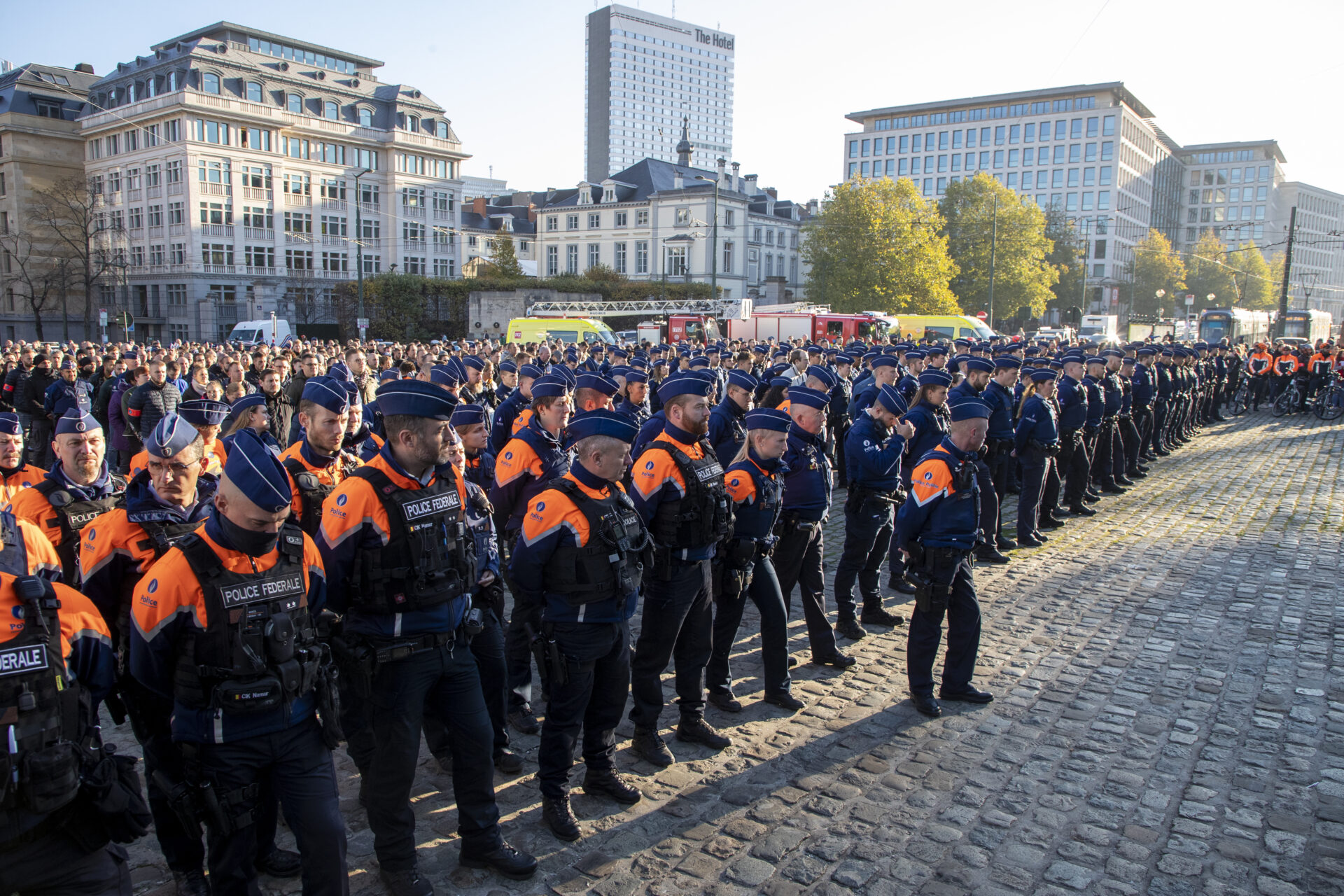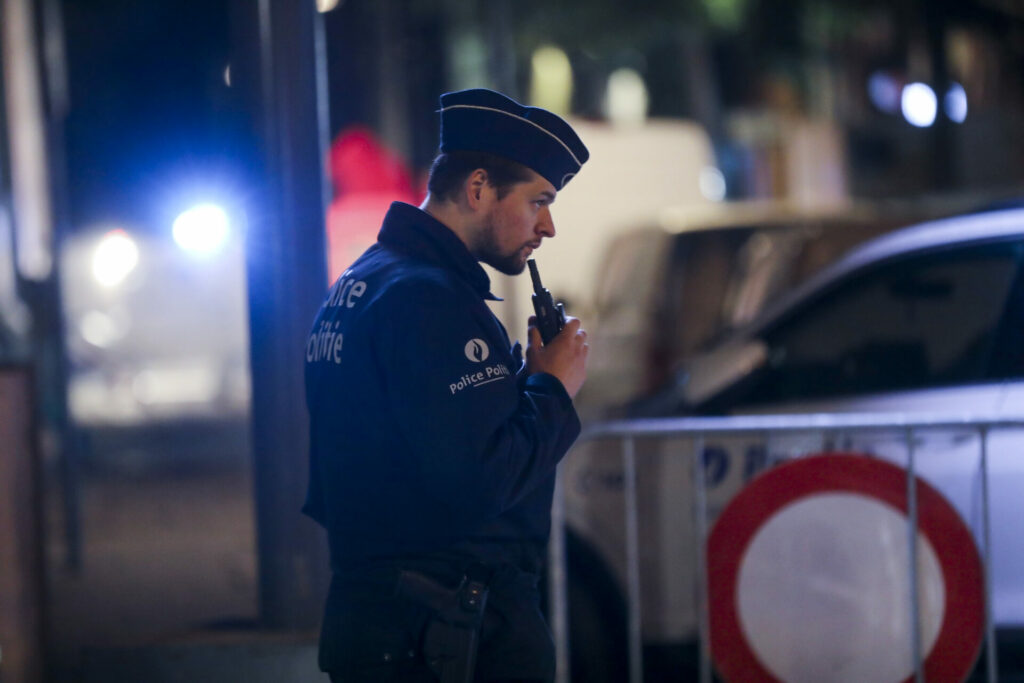Following the fatal stabbing of a police officer last month and another recent incident of police violence, the municipalities of Schaerbeek and Saint-Josse-ten-Noode have called on the Federal Government to find structural solutions for security in the Northern Quarter.
One month after 29-year-old police inspector Thomas Monjoie was stabbed while on duty in the Northern Quarter, resulting in a large-scale demonstration against anti-police violence, another officer of the same police zone was attacked by an 11-year-old with a closed folding knife in his hand on Sunday. This time, nearly 30 colleagues of Monjoie collectively called in sick in protest.
Mayors of two of the three municipalities covered by the police zone - Schaerbeek and Saint-Josse-Ten-Noode — called on the Federal Government to step in, stressing that police officers posted in the Northern Quarter are confronted with a "very complex reality on the ground" as the number of acts of violence have increased, particularly against the police.
"Attacks, assaults and insults are part of their daily routine, and the dramatic death of Inspector Thomas Monjoie in November is still in the minds of the police," a statement from Schaerbeek's mayor Cécile Jodogne read.
Already taking steps
The decision by the group of police officers to collectively call in sick for work on Tuesday followed a meeting between the office of Rudi Vervoort, Brussels Minister-President, as well as the regional administration, the public prosecutor's office and various police organisations to solve the security issues in a neighbourhood plagued by multiple problems.

Police officers during a tribute to Thomas Monjoie. Credit: Nicolas Maeterlinck
Jodogne argued that both municipalities have already implemented administrative measures to reduce night-time activities in the neighbourhood and support the work of the police officers. The Police College and the municipalities have been sounding the alarms for several years about the deteriorating situation in the Northern Quarter.
"Several factors have been identified, including the policy on immigration, the underfunding of the federal police force at the Gare du Nord, the lack of staff at the public prosecutor's office and the handling of mental health problems, which are becoming increasingly critical among the population," a statement read.
Reaching boiling point
Jodogne stressed that the municipalities, at a local level, have reached the end of their tether when it comes to measures they can implement.
"We now need to bring together the federal and regional partners who have a role to play in the neighbourhood in terms of prevention and security policies in order to be able to solve the problems in a structured way," she said.
Emir Kir, Mayor of Saint-Josse, added that the security of the Northern Quarter "must be the absolute priority of priority" for everyone. "What more do we have to endure for a generalised awareness to be raised and for consequent means to finally be released?" Kir asked.
In its response, Home Affairs Minister Annelies Verlinden's cabinet referred to various initiatives that had already been taken to address the situation, including a consultation named Medusa launched to address the problems regarding the growing sense of insecurity in the area around the North Station.
"The Medusa platform — with participants from the Federal and Local Police, the Federal Judicial Police, De Lijn, SNCB, and City of Brussels — meets bi-monthly under the supervision of the Brussels director-coordinator. As agreed by the platform, the Federal Railway Police patrols the station every day," Marie Verbeke, Verlinden's spokesperson, told The Brussels Times.
Related News
- Molenbeek residents bring warmth to asylum-seeker neighbours sleeping in tents
- Nearly 30 colleagues of stabbed Schaerbeek police officer 'collectively ill' after new incident
- One in eight people in Belgium live below the poverty line
She added that the canal plan was revived to ensure the fight against terrorism and extremism around this area continues, while tackling the drugs problem more forcefully, but recognised that cooperation between different policy areas is essential and that Verlinden wrote to Vervoort two weeks ago to further intensify his coordinating role on security in Brussels.
"This should involve all relevant partners in drawing up a coordinated integral and integrated action plan for the entire territory of Brussels. Minister Verlinden is available to cooperate on this. To date, the minister has received no response," Verbeke noted.

